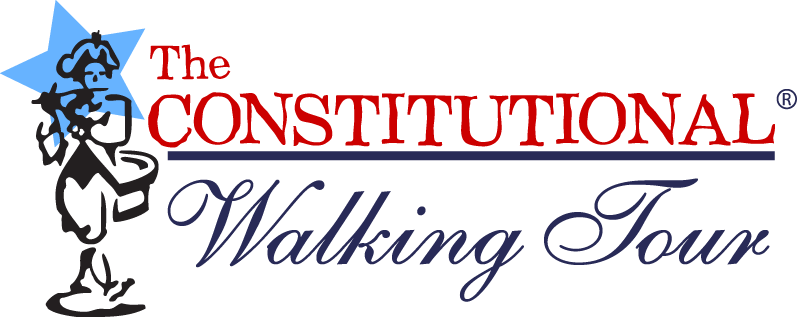Related Posts
- Buy Tickets for The Constitutional Walking Tour of Philadelphia – See 20+ Sites on a Primary Overview of Independence Park, including the Liberty Bell and Independence Hall
- Celebrating Juneteenth and the End of Slavery in the United States
- The President’s House: Slavery & Freedom in America’s Birthplace
- Independence Hall Tickets & Visitor Guide
- Liberty Bell History
- The Underground Railroad in Philadelphia
- "A More Perfect Union" - Remarks of Senator Barack Obama at the National Constitution Center
- Remembering the Civil War Museum of Philadelphia
On Juneteenth (June 19th), we celebrate the end of American Slavery on this day in 1865, when the last slaves in America were freed in Galveston, Texas. While Juneteenth is a holiday with a long history of celebration within the African American community, 2021 marks the first year in which Juneteenth will be celebrated as a national holiday. This is due to the hard work of many activists, in particular, Opal Lee, who is considered the grandmother of the movement to make Juneteenth a Federal holiday. A lifelong teacher and actvist, Lee had celebrated Juneteenth with her family in Texas since she was a child and had long pushed for more recognition for this important day. Her advocacy to make Juneteenth a national holiday became national news in 2016 when Lee, at the age of 89 decided to walk from her home in Forth Worth, Texas to Washington D.C. Lee traveled two and half miles on each day of her journey to symbolize the fact that even after Abraham Lincoln signed the Emancipation Proclamation on January 1, 1863, Black Texans had to wait two and half years before the last slave was freed.
On June 17, 2021, President Joe Biden announced, “Today, I had the honor of signing a bill to officially make Juneteenth a federal holiday. With this important step, all Americans can feel the power of the day, learn from our history, celebrate our progress, and grapple with the distance we still have to travel.” In doing so, President Biden also recognized Opal Lee at the White House.

To best understand why Juneteenth is such an important holiday, the words of Frederick Douglass can be helpful. In August 1844, just six years after his escape from Slavery, Frederick Douglass, then 26, was invited by Philadelphia abolitionist groups to speak at Independence Hall. While no text of Douglass’s speech is known to exist, reporting from the event describes a speech with striking similarities to Douglass's most famous speech, which he gave on July 5th, 1852 to the Ladies Anti-Slavery Society in Rochester, New York titled "What to the Slave is the Fourth of July?"
In his Rochester speech, Douglass expressed his respect for the accomplishments of America's Founding Fathers, but also made it clear that their successes were not for all Americans to enjoy, that the freedom they had gained was not extended to all Americans:
"What, to the American slave, is your 4th of July? I answer: a day that reveals to him, more than all other days in the year, the gross injustice and cruelty to which he is the constant victim. To him, your celebration is a sham; your boasted liberty, an unholy license; your national greatness, swelling vanity; your sounds of rejoicing are empty and heartless; your denunciations of tyrants, brass fronted impudence; your shouts of liberty and equality, hollow mockery; your prayers and hymns, your sermons and thanksgivings, with all your religious parade, and solemnity, are, to him, mere bombast, fraud, deception, impiety, and hypocrisy — a thin veil to cover up crimes which would disgrace a nation of savages. There is not a nation on the earth guilty of practices, more shocking and bloody, than are the people of these United States, at this very hour."
The day that the freedoms we celebrate on the Fourth of July, finally began to be extended to all Americans is an important day, not just for the descendants of those who were enslaved, but for all Americans. Making Juneteenth a Federal holiday is an imprortant step as America grapples with its past and moves towards a better, more equitable future. The work is not done, but in Douglass's 1852 speech, he also expressed that he is hopeful for America's future because America was a young nation, and even today, over 150 years after Douglass's speech, America is still a young nation. In the words of Douglass:
"The Republic of America is now 76 years old. I am glad, fellow-citizens, that your nation is so young. Seventy-six years, though a good old age for a man, is but a mere speck in the life of a nation. Three score years and ten is the allotted time for individual men; but nations number their years by thousands. According to this fact, you are, even now, only in the beginning of your national career, still lingering in the period of childhood. I repeat, I am glad this is so. There is hope in the thought, and hope is much needed, under the dark clouds which lower above the horizon. The eye of the reformer is met with angry flashes, portending disastrous times; but his heart may well beat lighter at the thought that America is young, and that she is still in the impressible stage of her existence. May he not hope that high lessons of wisdom, of justice and of truth, will yet give direction to her destiny? Were the nation older, the patriot’s heart might be sadder, and the reformer’s brow heavier. Its future might be shrouded in gloom, and the hope of its prophets go out in sorrow. There is consolation in the thought that America is young. Great streams are not easily turned from channels, worn deep in the course of ages.”





